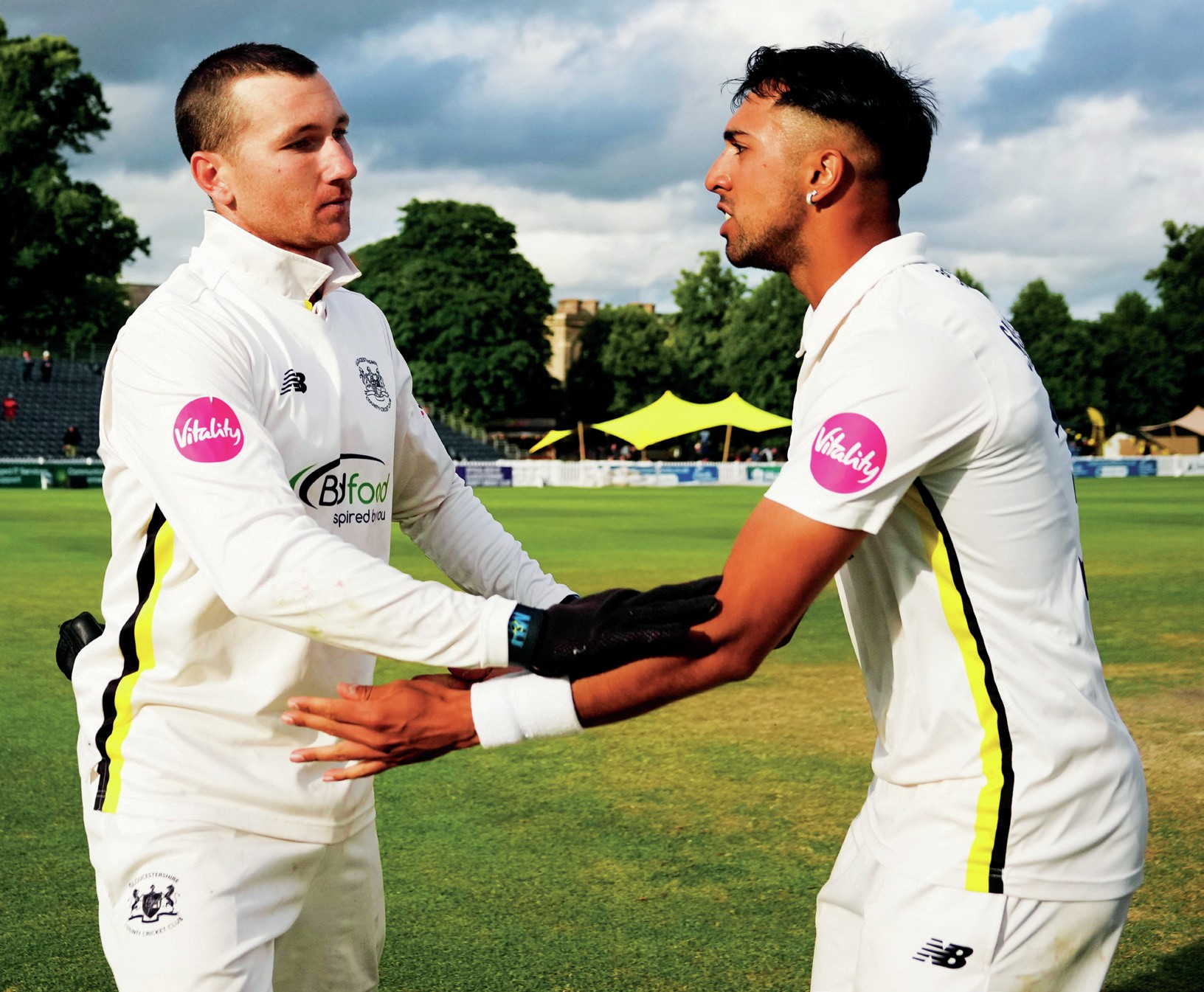Bracey’s best shows recovery is possible

BEN GARDNER
The Gloucestershire keeper has put his unfortunate England experience behind him at last
Any one of the following – a result reached on the last-possible ball of play, a first-class tie, and a team coming within one blow of achieving the game’s highest ever run chase – would be enough for a match to be remembered.
This year’s Cheltenham Festival somehow combined all three, and to top it off, the final dismissal was delivered in its own freakish, fantastic manner: wicket-keeper James Bracey, standing way closer to the stumps than he normally would and with one glove off in order to prevent an attempted bye, flinging himself instinctively to his right to grasp a thick edge in his inner before tearing off, arms outstretched, into the Gloucestershire gloaming.
The game had already been extraordinary. Glamorgan and the hosts had traded first-day batting collapses on a pitch which then eased up, leaving the stage set for a one-innings shootout across the last eight sessions. Gloucestershire put up 610-5 before deciding they had had enough. The first-class record stood, and still stands, at the 536 gunned down by West Zone in the 2010 final of India’s Duleep Trophy. Glamorgan needed seven shy of 600. But Marnus Labuschagne and Sam Northeast brought the unthinkable within reach, pushing on to 309-3 and then 544-7 before a frantic last hour.
This was a game neither side deserved to lose, and so it was fitting that neither did, and also that it was decided by its most deserving player. In pulling off his wonder-grab, Bracey earned his own little slice of history, as the first wicket-keeper to make a double-century and effect ten dismissals in the same game. He also opened a new chapter in a career which had looked as if it would be defined by an ill-fated, two-week stint in England’s Test side in 2021, but which now has a positive pivotal moment.
That series against New Zealand is a low point in England’s modern Test history, their only home series defeat in the last decade, and the locus at which the Chris Silverwood era began to turn ugly. England were depleted, with those at the IPL allowed to sit out, and Bracey was one of those to benefit, graduating from a year of Covid-bubble bib-wearing to being an official squad member. Still, he was there as cover, as a top-order bat and a wicket-keeper, rather than expecting to start, but when Ben Foakes slipped in the Surrey dressing room and ruled himself out of the series, Bracey was in. It was the unexpected fulfillment of a dream that quickly became a nightmare.
Sport is sometimes presented as the ultimate meritocracy, and none more so than cricket, where the bare statistics are there for all to read: runs, wickets, averages. And there were those who took one look at Bracey and deemed him not good enough. Bracey’s numbers read three innings, eight runs, an average of 2.33.
Instead however, this was an example of how cruel the game can be, and of the extent to which luck can play its part. An injury at the right or wrong time; a transfer not taken; a marginal selection call – each can have a ripple effect far beyond the immediate. Had Foakes been wearing slides rather than socks at The Oval that day, Bracey would have remained England’s next in line.
When they then required a replacement for Zak Crawley partway through the India series which followed, it may have been he who got the nod, batting in his regular position rather than down at No.7, with the comfort of knowing he would get some sort of run in the side. Who knows how it might have turned out?
Instead, he told himself he had to make as good a case as possible in the two Tests he knew he would get, and then saw that opportunity slip away. He was undone by a good piece of bowling in his first go, then played a nervous shot in his second, before falling attempting a paddle sweep in his third. And that was that. The pressure had got to him. “It just wasn’t something that I do in that situation,” he told the Telegraph earlier this summer. “In three innings I had completely gone away from what got me there.”
In that same interview, he spoke of the toll that getting to the top and then slipping back had on him. “[Cricket] wasn’t giving me as much pleasure as usual, and I was getting very down on myself,” he said. “I found that my mental health was directly related to cricket. It’s definitely triggered by that, the overwhelming pressure I put on myself to go out and do well was hard to deal with when I didn’t. That was tricky because you can’t go out and score runs every week. I wasn’t helping myself.”
He sought help from the PCA and slowly rediscovered himself. This summer he is averaging 64, is in sight of his season’s best run tally, and has notched three centuries. And then came that final moment at Cheltenham. For Glamorgan, the mountain of work that went into reaching the summit all came undone at the last hurdle. Bracey knows that feeling, and now knows what it takes to come again.
Ben Gardner is Managing Editor of Wisden.com
For exclusive stories and all the detailed cricket news you need, subscribe to The Cricket Paper website, digital edition, or newspaper from as little as 14p a day.